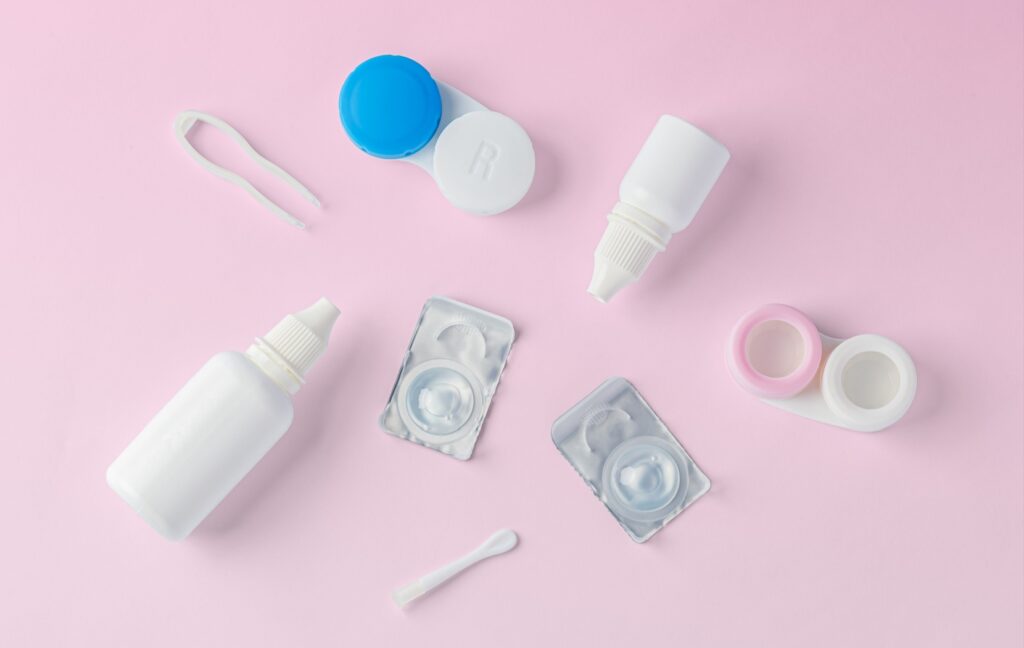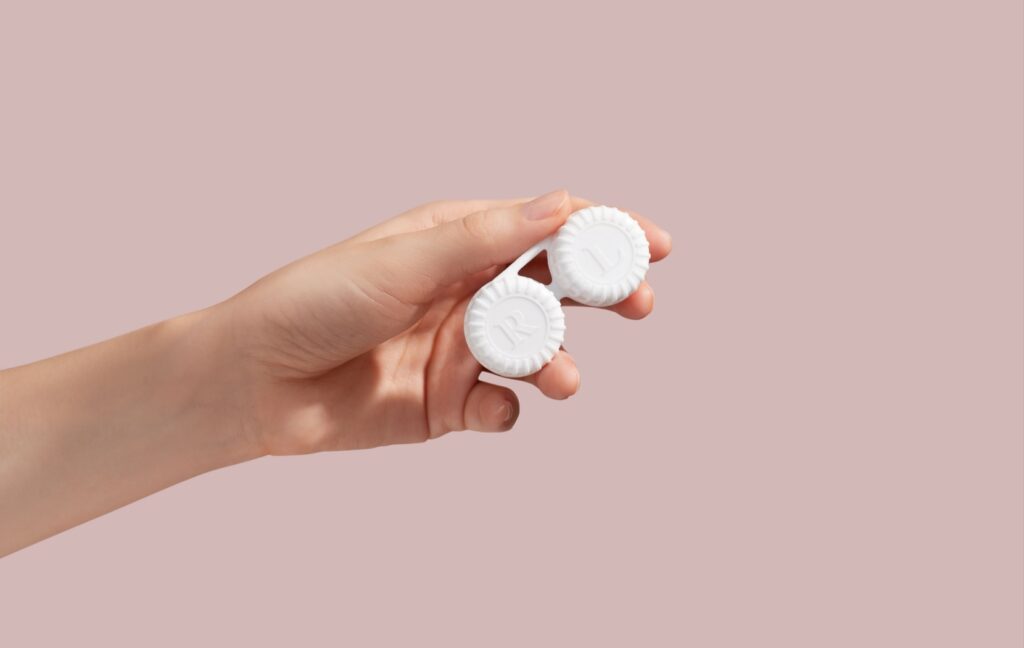Contact lenses are a convenient and comfortable vision correction alternative to eyeglasses. But like most other medical devices, they come with an expiration date.
If you’re wondering whether you can safely use those contact lenses sitting at the back of your bathroom cabinet, the answer is that you shouldn’t. Wearing expired contact lenses could lead to reduced oxygen flow to your eyes, eye irritation, blurriness, and even an increased risk of eye infections.
Why Do Contact Lenses Have Expiration Dates?
Yes, contact lenses can expire! Even if they’ve never been opened, contact lenses (and their packaging) are designed to maintain sterility and function for a specific period of time. Beyond their expiration date, they can degrade, introducing possible risks to your eye health. Here are the main reasons why contact lenses have expiration dates:
1. Packaging Sterility
Contact lenses are sealed in sterile blister packs filled with saline solution. This packaging ensures that they stay clean and bacteria-free until they’re ready for use. Over time, however, this seal can weaken, exposing the lenses to bacteria or other harmful microorganisms. Even a small breach in the packaging can put your eyes at risk of infection.
2. Material Breakdown
Contact lenses are made from specialized materials designed to balance comfort, moisture retention, and oxygen flow to your eye. However, these materials don’t last forever. With time, they can degrade, becoming less effective and potentially irritating to wear.
3. Health & Safety Standards
All medical devices, including contact lenses, must meet strict health and safety regulations. Expiration dates are required to ensure that manufacturers provide products that are safe and effective to use. Simply put, those dates aren’t arbitrary; they’re there to protect you.
The Risks of Using Expired Contact Lenses
It might feel tempting to wear expired lenses, especially if they look fine and feel okay when you put them in. But using them could set you up for preventable eye health issues. Here’s what could happen:
Eye Irritation
Degraded lens material often leads to discomfort, redness, or itching. While this might seem tolerable at first, irritation can escalate quickly.
Reduced Oxygen Flow
Over time, lenses lose their ability to allow oxygen to pass through to the cornea. Insufficient oxygen supply, or corneal hypoxia, can have long-term consequences for your eye health.
Higher Risk of Infection
Expired or improperly stored lenses may harbour bacteria, fungi, or other microorganisms. This increases your risk of developing eye infections.
Blurred Vision
Expired lenses may lose their shape or moisture-retaining properties, which can affect their ability to provide crisp, clear vision.
How to Check If Your Contact Lenses Have Expired
Not sure if your lenses are still good to use? Here’s how to check:
1. Look for the Expiration Date
Contact lens packaging always includes an expiration date, usually labelled as “EXP” followed by a month and year (e.g., EXP 2025-06). Using lenses past this date is not recommended.
2. Inspect the Packaging
Even if the expiration date hasn’t passed, damaged, leaking, or unsealed packaging means the lenses are no longer sterile. When in doubt, throw them out.
3. Examine the Lenses
If your lenses look torn, cloudy, or discoloured, they’re likely not safe to wear—even if they haven’t expired. Always check your lenses before putting them in your eyes.
Tips for Proper Contact Lens Care

Knowing when and how to care for your contact lenses can prevent many eye issues. Here are some essential tips for maintaining healthy eyes and maximizing the lifespan of your lenses:
1. Pay Attention to Expiration Dates
Always check the expiration date on your contact lenses before use. Using lenses within their safe period ensures your eyes stay free from unnecessary risks.
2. Follow Replacement Schedules
Contact lenses aren’t just about expiration dates; they also have specific usage timelines:
- Daily lenses should be discarded after one use.
- Bi-weekly or monthly lenses need to be replaced according to their intended duration of use.
Don’t try to stretch these schedules, as overworn lenses can lead to irritation or infection.
3. Store Lenses Properly
If you use reusable lenses, keep them clean in a storage case filled with fresh contact lens solution. Never reuse old solutions or substitute tap water, as these can introduce harmful bacteria to the lenses.
4. Maintain Good Hygiene
Always wash and thoroughly dry your hands before handling your lenses. Clean hands mean reduced chances of transferring dirt, oil, or bacteria to your eyes.
5. Schedule Regular Eye Exams
Your eyes change over time, and your contact lenses should always reflect your current prescription and needs. Regular visits to your optometrist ensure your eyes remain healthy, and they allow your doctor to check that your lenses fit perfectly and are suitable for long-term wear.
Protect Your Eyes While Wearing Contacts
Contact lenses are a fantastic tool for clear and convenient vision, but they’re only as good as the care you provide. By respecting expiration dates and prioritizing proper hygiene, you can protect your eyes from unnecessary risks and enjoy comfortable, safe wear every day.If you’re unsure about the status of your lenses or want expert guidance on contact lens care, the team at Northern Lights Eyecare is here for you. Book an appointment today to ensure your prescription is up-to-date and your eyes are set for success.


